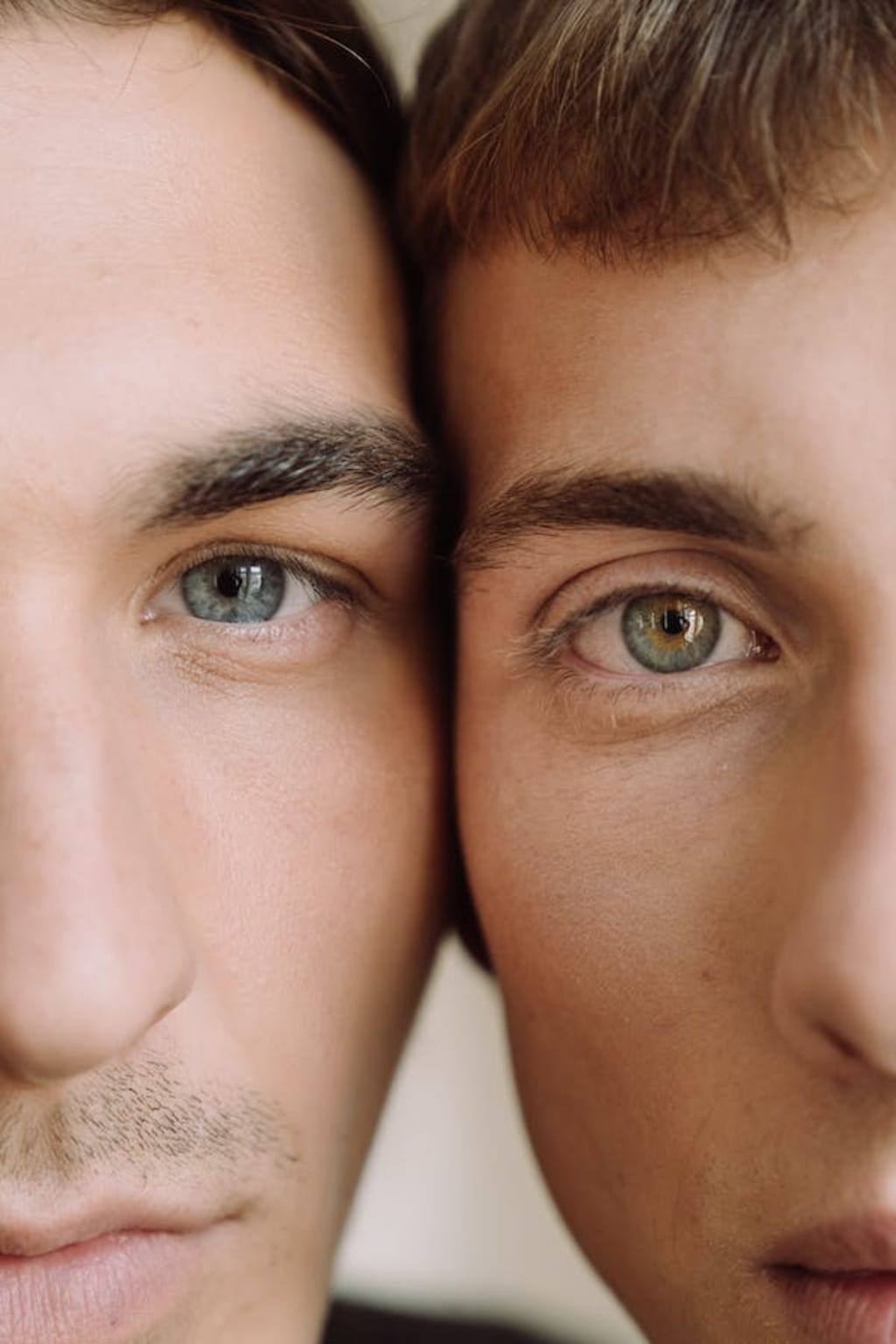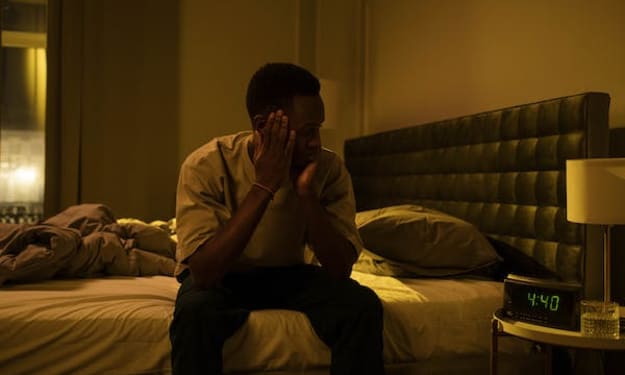EFFECT OF LIGHT ON EYES - BLUE LIGHT AS CASE STUDY
Blue light damage eye or not?

I will dispel misconceptions regarding vision. Many people believe that 2020 indicates perfect vision; however, there is much more to vision than simply reading the eye chart and counting down to 2020. Furthermore, when we say 2020 vision, it implies that this graph is at 20 feet from the patient and they can peruse right down to this line here. There are different lines underneath that certain individuals can truly peruse surprisingly better than 2020, yet there are such countless different parts of vision. For instance, there's variety vision, fringe vision, difference vision, and we additionally check for close-to-point vision, which has to do with perusing very close. In fact, you could have 20/20 vision yet have a condition, for example, glaucoma, which can cause fringe vision. Misfortune, which implies you have ideal 20/20 vision in the middle; however, you could have side vision. Misfortune Blue light will harm my eyes. Goodness, my , I don't have the foggiest idea what to think about that. Back in 2018, there was a review that came out that the media got on, and they said gracious blue light will harm your retina and cause a super durable visual deficiency. What the scientists did in the review was they took cells they put them in a petri dish and they presented those phones to high elevated degrees of blue light and they figured out that those phones kicked the bucket truly the phones that they put in that petri dish were not even eye cells they were cervical malignant growth cells so our retina cells have colors that safeguard us against blue light they're called lutein and zeaxanthin they're similar to our regular blue blockers and they safeguard our eyes against blue light so there is no confirmation that blue light harms your eyes and assuming it were truly evident we would really have a pandemic of visual impairment since us all are on gadgets constantly kids grown-ups and it's simply false we truly do realize that it influences our rest and it causes a sleeping disorder since it changes our circadian musicality so when you wear like covering on your glasses it assists with light responsiveness and brightness and just by and large causing you to feel more great while you're taking care of business so there is no drawback to it the color has an effect since, in such a case that you put on the lighter color blue blockers and assuming that you take a gander at your screen on the off chance that you can in any case see blue it implies that that blue blocker isn't shutting out 100 of the blue light perhaps it's shutting out a specific lower rate perhaps 30 to 40 percent versus assuming that you put on these are the super blue blockers on the off chance that you take a gander at a screen with these on you see no blue at all so for instance assuming i'm experiencing difficulty resting and I want to utilize my PC around evening time i'll wear these at evening two hours before bed so it doesn't actually obstruct my rest the other thing that can happen when you're on a screen for quite a while is presumably you're not sufficiently squinting so you're presumably additionally getting dry eye and that is presumably likewise adding to the eye strain you will lose your vision as you age I hear this all the ideal opportunity for my patients I havepatients who are more established your 60s 70s 80s even 90 year old patients who still have20 20 vision some of the time the supper menu gets more diligently to peruse at the eatery and I let them know that is totally typical that is not losing your vision it's that our vision begins to alter in the other course in some cases so while we're alluding to presbyopia that is the progressive change when our eyes can't oblige or zero in on close to objects too and we will generally keep things further down so for what reason does this happen well this is on the grounds that inside the eye we have a focal point now typically the focal point is entirely adaptable and it can change shape in some cases it can get thicker or more slender in the center that permits us to concentrate at various distances as we age however this focal point doesn't change shape too it turns out to be all the more firm and when it turns out to be all the more solid that is called loss of convenience or presbyopia and again that normally happens to the vast majority at some point in their 40s or 50s we likewise notice that over the long run our eyes begin to improve as we age it has to do with the way that as we develop our eyes prolong and that can prompt nearsightedness or astigmatism and over the long haul very much like our body can contract our eyes can shrivel more limited and that can lead our medicine to go a contrary way there's parcels that can turn out badly yet as long as you see your eye specialist routinely you figure looked at for it you get it you can in any case keep up with great 2020 vision into your brilliant years lasik implies no glasses perpetually I wish that were valid yet there is no assurance with any sort of technique that your vision will be what you trust it to be lasik is resetting your medicine back to nothing so lasik can give sharp clear vision yet that doesn't mean it can forestall nearsightedness relapse or the requirement for bifocals in some cases there can be relapse which actually intends that following a half year or a year the cornea might begin to change once more into its regular shape generally it is extremely protected yet ensure you converse with your specialist about it first to ensure that you're a decent competitor in light of the fact that not every person is a decent up-and-comer OK, partial blindness rises to finding in highly contrasting situations. This is a fascinating one, and many individuals feel that assuming you have partial blindness, all you will see is monochrome yet false. The vast majority have visual weakness, or what we call variety lack. They definitely dislike seeing various shades of reds and greens, and in some cases, oranges and yellows. It isn't so much that they can't see those varieties; they see those tones distinctively, so we have cells in our retinas called photoreceptors. The bars are responsible for light and dull vision, and the cones are responsible for variety dreams. we have red cones green cones and blue cones and these cones are undeniably fixed on specific frequencies so in individuals who are visually challenged it isn't so much that they don't have those cones it's that those cones are set to an alternate frequency so rather than seeing a red is radiant red they might see it sort of as a muffled variety or perhaps as like an orange or yellow truly it's normal in the populace to have partial blindness I believe it resembles eight percent of the populace assuming you go to the eye specialist they can do a variety test on you it shows you numbers inside examples of variety and it tests the power or thickness of how much partial blindness there is over a range yet it truly doesn't affect somebody's life at all individuals with visual impairment capability totally typically and there is no drawn out issue with that eye activities will further develop your vision what is your take on that this is a fantasy could I at any point do this please yes so there is such a lot of deception out there with regards to eye practices many individuals imagine that in the event that they do specific activities that will assist them with diminishing their nearsightedness or their hyperopia or their astigmatism I wish that were valid yet there is no reality to that our eyes are molded with a particular goal in mind our corneas are molded a specific way the length of the eye is a sure way and what you do as far as activities won't change that so it is most likely perhaps of the greatest legend out there you might have known about the 20 20 20 rule which is like clockwork have some time off to take a gander at something 20 feet away, and actually the entire objective of that is to permit your eyes to unwind frequently to the distance, so that frees a tad from that strain, yet it unquestionably isn't something that remedies for your vision. there is one condition where eye activities can help it's a condition called combination deficiency where on the off chance that we're seeing something very close from here onward, indefinitely quite a while the eyes get exhausted and begin to float outa tad so there is one activitycalled pencil push-ups where individuals canassist with reinforcing those muscles and helpthem concentrate longer and not feel thatweakness perhaps it'll keep them fromseeing things however it will not as a matter of factchange the power or the refraction ofthe eye I figure the most effective way to move alongyour vision is basically to go to the eyespecialist figure out what the issue is andfigure it out wearing glasseswill aggravate your vision I get this all as an ideal opportunity for my patients, like specialists. Do I really want to wear these glasses? If not, it will compound the situation. The truth is that when individuals are seeing hazy, they wear their glasses, and afterward they see plainly; however, at that point, they take their glasses off, and suddenly they're saying hazy again. Wearing them or not wearing them does not cause movement. The change has more to do with hereditary qualities and just normal pivotal prolongation of your eyeballs. A similarity I like to use with my patients is that suppose you harmed your lower leg and you can't walk as expected, so use a bolster. It will help you, but it's not really going to demolish your lower legs. So assuming your eye specialist thinks you want glasses or contacts and recommends them for you, it's for your advantage. It will assist you with seeing better, so kindly wear them. Dry eyes aren't intense, which is an interesting one. More often than not, dry eyes probably won't be serious, but they could cause potential issues that lead to scarring on the cornea.





Comments (1)
Wow! So educative and intriguing